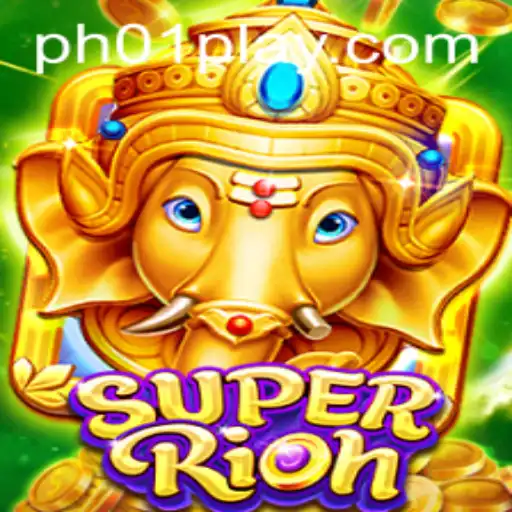
Exploring the Excitement of CrazyNuoZha: A Comprehensive Guide to the Game
Dive into the world of CrazyNuoZha with our in-depth guide covering the game's description, introduction, and rules.
Home » Monopoly
Monopoly, while initially perceived as a mere board game, serves as more than just entertainment for households around the world. It is a portal into understanding economic principles, particularly the concept of monopoly in the economic marketplace. With the game’s enduring popularity, both the board game and the economic concept warrant a comprehensive exploration.
The inception of Monopoly dates back to the early 20th century, with the original intention of demonstrating the negative aspects of concentrating land in private monopolies. Created by Elizabeth Magie in 1903 under the original title "The Landlord's Game," it was designed to showcase the economic imbalance and social injustice stemming from monopolistic practices. Over decades, the game evolved through various adaptations until the Parker Brothers began its commercialization in the 1930s.
The primary objective of the board game is to dominate the market by acquiring properties, charging rents, and eventually driving competitors to bankruptcy. Each player moves around the board buying, trading, and developing properties to increase their own wealth, illustrating the financial cycle of acquiring and consolidating economic power.
The rules of Monopoly are designed to simulate real-life economic scenarios. Starting with a fixed amount of in-game currency, players engage in transactions involving property, rent payments, and negotiations. The strategic decisions revolve around budgeting, investing, and outmaneuvering opponents. While the goal is to create a monopoly by owning complete color sets, players also encounter risks, such as taxes, penalties, and chance cards.
Through strategic gameplay, Monopoly challenges players to make calculated risks and decisions, fostering an understanding of investment, debt management, and market dominance. The game's dynamic reflects fundamental economic principles, including supply and demand, negotiation, and the effects of market control.
In the real world, monopoly refers to the domination of a market segment by a single entity, effectively eliminating competition. This market control allows the monopolist to influence prices, regulate supply, and create barriers to entry for potential competitors, often leading to higher prices and less consumer choice.
The consequences of a monopoly in economics can be seen in various sectors where single companies govern resources, production, and distribution. Similar to the board game, real-world monopolies can lead to economic stagnation, innovation constraints, and unequal wealth distribution.
Governments and regulatory bodies strive to counteract monopolistic powers to protect consumer interests and maintain competitive markets. Through antitrust laws and regulations, authorities work to dismantle monopolistic structures, fostering fair competition and innovation. This mirrors the disruptions within the game, where players strategically find ways to challenge a leading competitor's dominance.
Beyond the economic themes, Monopoly has entrenched itself in popular culture, representative of the capitalist values embedded within society. The game has spawned numerous editions and adaptations, each reflecting various cultural, geographical, and historical contexts. Its pervasive influence is a testament to its education on financial literacy and strategic planning.
The enduring popularity of Monopoly can also be attributed to its ability to bring abstract economic theories into tangible experiences, making it accessible to players of all ages. By navigating the intricacies of the game, players unknowingly acquire a foundational understanding of economic principles.
Playing Monopoly fosters critical thinking and decision-making skills. It serves as a practical exercise in arithmetic and strategy, urging players to continuously adapt and reassess their tactics throughout the game. Participants learn the importance of balancing short-term gains with long-term planning, a crucial skill in both personal finance and business strategies.
Furthermore, the game encourages social interaction, negotiation skills, and conflict resolution, as alliances and agreements are often necessary for advancement within the game. This mirrors real-world economic relations where collaboration and competition coexist within markets.
Monopoly, both as a board game and an economic concept, continues to captivate audiences worldwide. Through its gameplay, it illustrates the complexities of economic systems, sparking discussions about capitalist dynamics and market control. Whether played for enjoyment or analyzed for educational purposes, Monopoly remains an influential tool in understanding economic principles and market behaviors. By navigating the game's challenges, players engage with a microcosm of economic theory, skill development, and strategic insight.
Ultimately, Monopoly stands as a tribute to human ingenuity and the perpetual exploration of economic laws that govern societies, reinforcing its significance in both entertainment and academia.


Explore hundreds of slot games, live casino tables, and unique fishing games. We regularly update our collection with new releases, so there’s always something fresh to try.
Enjoy generous welcome bonuses, free spins, and daily promotions. Whether you’re a new player or a returning member, we offers plenty of ways to boost your winnings.
We’re here to help whenever you need it. Our customer support team is available around the clock to assist with any queries or issues.
Take the fun with you! Our platform is fully optimized for mobile devices, allowing you to play on your smartphone or tablet without compromising quality
Step into the exhilarating world of card games with PH01! From timeless classics like Pok Deng and Tongits to the fast-paced excitement of Color Game and Hoo Hey How, our diverse selection captivates every player.
In collaboration with top providers like TP, JILI, KM, FTG, and RICH88, we deliver a stunning array of games that promise nonstop entertainment. Furthermore, each game offers more than just strategy and skill—expect heart-racing action and mind-bending challenges that will keep you engaged at every turn!
PH01 is excited to offer an exclusive PHP 66 free bonus to kickstart your card gaming journey! Explore our vast library of card games, featuring both beloved classics and exciting new releases that promise endless entertainment.
Use this special bonus to enhance your gaming experience and discover everything PH01 has to offer. Whether you’re a seasoned player or just starting, our platform caters to all skill levels. Moreover, enjoy expert tips, strategic insights, and thrilling opportunities to win big!

Dive into the world of CrazyNuoZha with our in-depth guide covering the game's description, introduction, and rules.

Explore the universe of RocketStars, a cutting-edge game that combines thrilling space adventure with strategic gameplay.

Explore the immersive experience of SuperRich, learn the rules, and discover how current events are shaping this captivating game.

Dive into the thrilling world of WorldCupRussia2018, a captivating soccer game that blends strategy, skill, and passion.

Dive into the electrifying gameplay of ZeusRushFeverDeluxe, a captivating game that blends mythological themes with modern-day casino excitement. Using the keyword PH01, explore its features, gameplay, and the surrounding current events influencing its popularity.

Dive into the thrilling world of TreasuresnipesBonusBuy. Explore its features, gameplay, and strategic elements set against the backdrop of recent trends.

PH01 – The Ultimate Destination for Gaming Enthusiasts Worldwide
